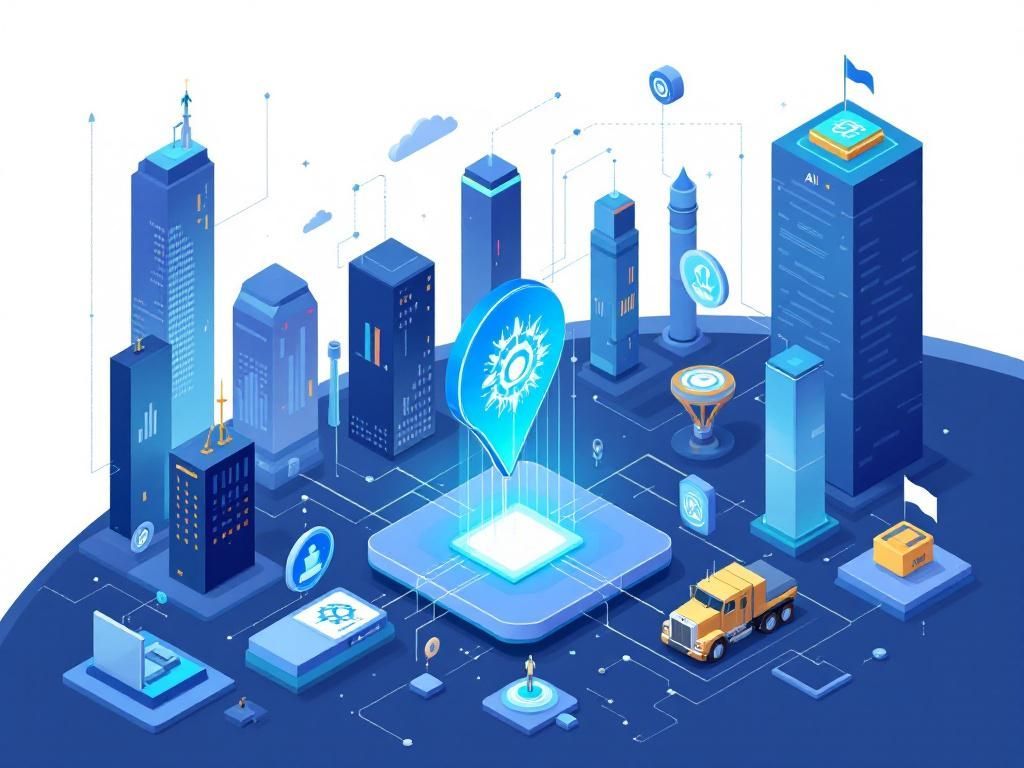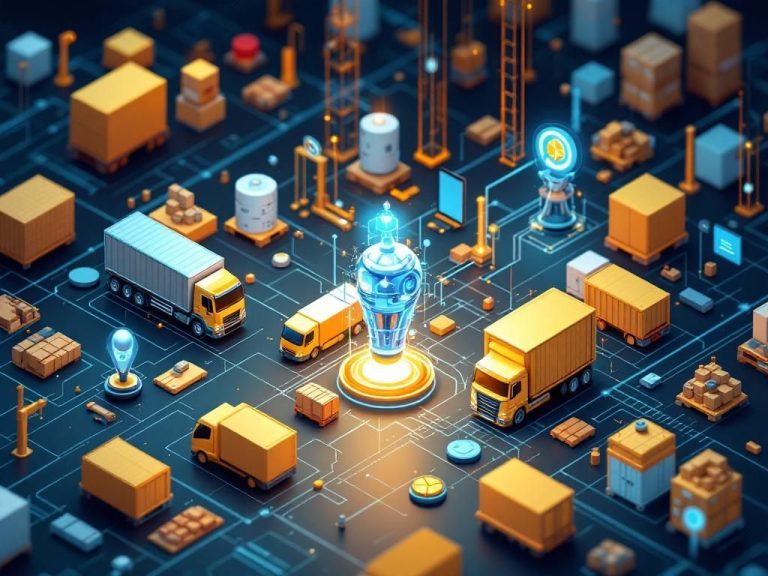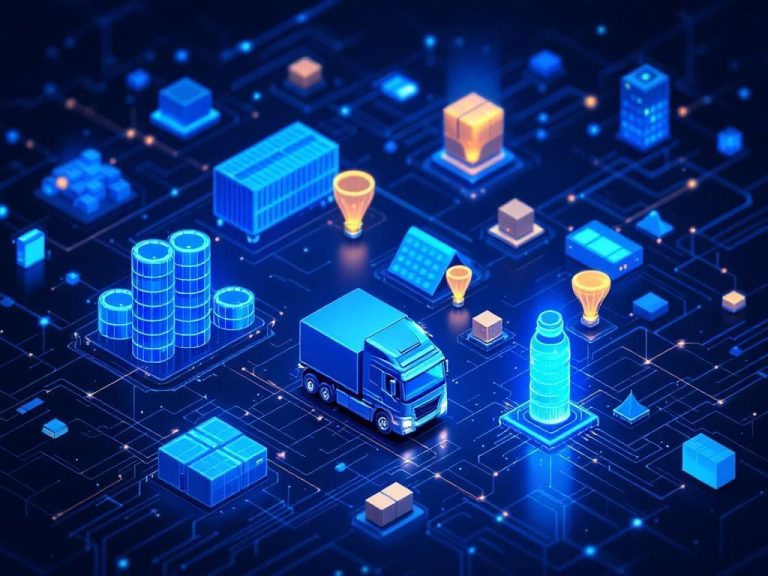In the rapidly evolving landscape of supply chain management, artificial intelligence (AI) is not merely an enhancement; it is becoming essential for organizations to remain competitive. The intersection of AI and supply chain optimization facilitates improved decision-making, enhances visibility, and drives efficiency. As we look towards 2025, several platforms stand out for their innovative use of AI technologies. This article explores some of the most promising AI supply chain platforms expected to shape the future of logistics and operations.
Understanding AI in Supply Chain Management
The integration of AI within supply chain management involves employing advanced algorithms and machine learning models to analyze vast amounts of data. This capability enables businesses to:
- Predict demand accurately
- Enhance inventory management
- Optimize routing and logistics
- Improve supplier collaboration
- Mitigate risks effectively
AI-driven supply chain platforms are leveraging these aspects to create more agile, responsive, and cost-effective systems. Below, we delve into several platforms that are leading the charge.
Key Players in AI Supply Chain Platforms
1. IBM Supply Chain Insights
IBM Supply Chain Insights is a powerful tool that uses AI to provide actionable insights across the supply chain. Key features include:
- Predictive analytics: Uses historical data to forecast demand and optimize inventory levels.
- Network optimization: Enhances supply chain visibility for better decision-making.
- Risk management: Identifies potential disruptions and suggests mitigation strategies.
IBM’s focus on a unified platform enables organizations to consolidate data and insights, fostering collaboration across departments.
2. Microsoft Azure AI
Microsoft Azure offers a robust suite of AI services that can be tailored to supply chain needs. Its capabilities include:
- Machine Learning: Develop custom models for demand forecasting.
- IoT Integration: Connect IoT devices for real-time data collection and monitoring.
- Analytics: Leverage Azure’s analytics tools for deep insights into supply chain performance.
The flexibility and scalability of Azure make it an appealing choice for organizations looking to innovate their supply chain processes.
3. SAP Integrated Business Planning (IBP)
SAP IBP provides an integrated solution that combines AI with planning and forecasting capabilities. Users benefit from:
| Feature | Description |
|---|---|
| Collaborative Planning | Enhances cross-functional collaboration for better forecasting. |
| Real-time Analytics | Utilizes real-time data to drive agile decision-making. |
| Scenario Planning | Facilitates what-if analysis to evaluate potential strategies. |
SAP IBP is particularly effective for large enterprises with complex supply chains that require precise coordination.
Emerging Technologies Enhancing AI in Supply Chains
As we approach 2025, several emerging technologies are expected to further enhance AI capabilities within supply chain platforms:
1. Blockchain Technology
Blockchain ensures data integrity and transparency across the supply chain. Smart contracts enabled by blockchain can automate and secure transactions, reducing delays and disputes.
2. Robotics Process Automation (RPA)
RPA can streamline repetitive tasks, allowing human resources to focus on strategic decision-making. Integrated with AI, RPA can optimize workflows and improve accuracy.
3. Edge Computing
Edge computing allows data processing closer to the source, reducing latency and enabling real-time analytics. This is particularly beneficial for IoT applications within the supply chain.
Choosing the Right AI Supply Chain Platform
When selecting an AI supply chain platform, organizations should consider the following factors:
- Scalability: Ensure the platform can grow with your business needs.
- Integration: Check compatibility with existing systems and data sources.
- User Experience: A user-friendly interface aids in faster adoption and utilization.
Conducting a thorough assessment of these aspects can help in making an informed decision that aligns with organizational goals.
Conclusion
AI is set to revolutionize supply chain management by enhancing efficiency, visibility, and responsiveness. As we approach 2025, platforms like IBM Supply Chain Insights, Microsoft Azure AI, and SAP Integrated Business Planning are poised to lead in this transformation. By adopting AI-driven solutions, organizations can not only adapt to changing market demands but also gain a competitive edge in an increasingly complex global landscape.
FAQ
What are the top AI supply chain platforms to watch in 2025?
Some of the top AI supply chain platforms to watch in 2025 include platforms like IBM Watson Supply Chain, SAP Integrated Business Planning, and Oracle Supply Chain Management Cloud.
How can AI improve supply chain management?
AI can enhance supply chain management by providing predictive analytics, optimizing inventory levels, improving demand forecasting, and automating routine tasks for better efficiency.
What features should I look for in an AI supply chain platform?
Key features to look for include predictive analytics, real-time data integration, machine learning capabilities, user-friendly interfaces, and robust reporting tools.
Are there any emerging trends in AI supply chain technology for 2025?
Emerging trends include increased use of autonomous vehicles, enhanced data analytics, greater focus on sustainability, and the integration of blockchain technology for transparency.
What industries can benefit from AI supply chain platforms?
Industries such as retail, manufacturing, logistics, and food and beverage can greatly benefit from AI supply chain platforms due to their complexity and need for efficiency.




